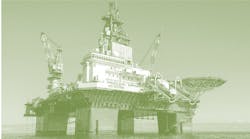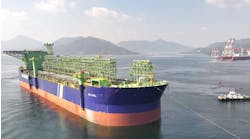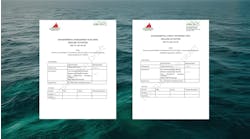Offshore staff
STAVANGER. Norway -- Statoil has contracted Plexus Holdings to supply its proprietary POS-GRIP High-Pressure/High-Temperature wellhead technology.
Plexus will provide an 18 3/4-in. 15,000 psi (1,034 bar) adjustable wellhead system for the 2/4-21 King Lear exploration well in the Norwegian North Sea.
The company has also provided an update on a joint industry project launched last October.
Plexus asked various oil and gas operators and service companies to contribute to the process of applying friction-grip technology to a new subsea wellhead design (HGSS). The aim is to address various technical issues that have arisen following recent offshore well control incidents around the world.
The JIP’s preliminary phase, which has been completed, included conceptual design and dialogue with oil and gas majors and regulators. The resultant HGSS will feature:
o A 18-3/4” full bore system, rated to 15,000 psi (1,034 bar) and 350° F (176° C), and upgradeable to 20,000 psi (1,379 bar) and 450° F (232° C)
o 4 million lb “instant” casing hanger lockdown capacity
o Annulus monitoring and access capability to address sustained casing pressure (‘SCP’) situations
o Rigid metal annular seal technology matching the performance of premium casing
o It will also comply with the requirements of API 17D/ISO 13628-4, recently provided additional operator requirements, and Plexus life cycle testing.
The 18-24 month development program is under way. Plexus estimates a total cost for this two-year program at £1.5-2 million ($2.4-3.2 million). Following the completion of detailed technical specifications, development and qualification testing of the HGSS should start early next year, with field trials targeted for deployment during 3Q 2012.
A Plexus spokesman said that the recent well control incidents “have raised awareness of the critical function of wellheads, particularly in subsea applications. With this venture we plan to address the emerging requirement for improved integrity throughout and beyond field life.
“As operating conditions become more extreme, long-term performance will inevitably require that firstly all critical seals are isolated from forces at work in the well, and secondly that monitoring facilities, combined with the ability to effect repairs to the production casing annulus are provided, should such remedial action prove necessary.”
03/11/2011


